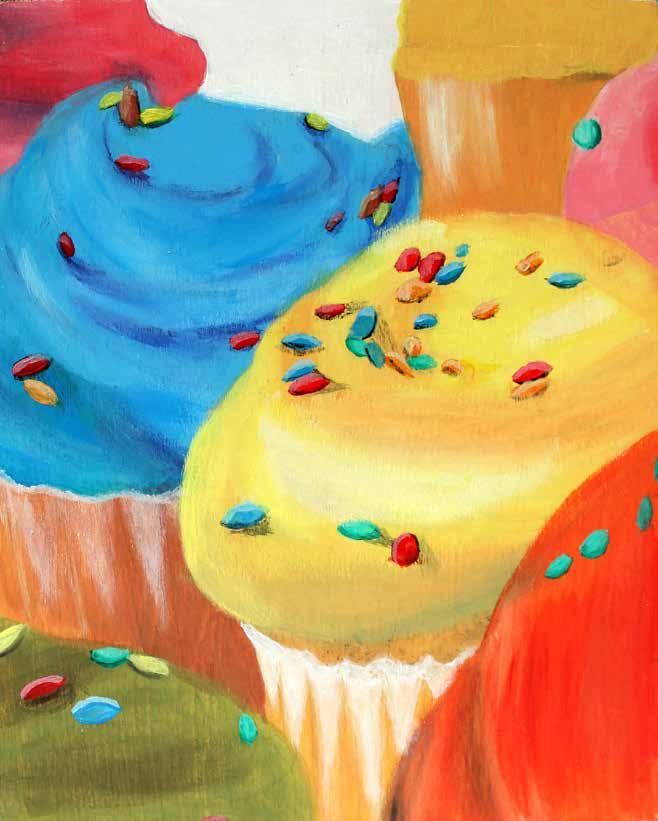
2 minute read
ANO THER JELLY DONUT
SON ALI VYAS
As I kiss your candied lips, a thought crosses my mind. It’s a thought repeated, one that’s plagued my conscience for months. Yet I still shove it aside , in favor of this sickly fer ver. I ignore my thoughts of doubt and that bilious feeling in my stomach… Perhaps I ate one too many jelly donuts; they tend to make me ill. You told me that they have the same effect on you But you still buy them, and so do I Because jelly donuts are all we know.
Advertisement
S YDNEY KIM
A taste map had spanned a cr inkled page in our biology textbooks, looking yellow in the September after noon. Ugly blobs were slapped onto different regions of the gar gantuan, car toon tongue . A peculiar ly br ight or ange had mar ked the tip of the diagr am, next to it inscr ibed in bold black: SWEET.
Dir k P Hanig, a Har vard psychologist, had developed the taste map in 1901 With the judgment of sever al
I had looked back to see you slumped against the desk, left cheek pressed against your palm You were scr ibbling something undoubtedly profane across the massive pink muscle “Look!” Gr inning, you presented your page to me , at which I squinted and shook my head The pencil was too faint against the or ange
Meanwhile , my front teeth scr aped the tip of my tongue to the rhythm of a br ainless chant r unning laps in the back of my head Sweet Sweet Sweet.
Later, in the cozy cor ner booth of our diner, you had met me with the textbook. I was poking just the Haning’s research. “See , the thing ‘bout this tongue ,” you had explained. “Is that it makes no sense . This exper iment used people , and people make things up in their heads. It’s all subjective .”
My tongue had gone numb against the cold of the desser t. With nothing to say, I had instead giggled at the childish “WRONG!!!” you had scr awled across the aged paper.
Through your college applications, we sat in that booth. You bent over your essays. I apologized for your wor kload, swir ling my tongue in circles until it swelled sore and red. I had for gotten Hanig’s name and his theor y after the unit had passed. We gr aduated in May 1950.
In 1974, psychologist Vir ginia B Collings published her thesis debunking Hanig She concluded that after measur ing the var iations of tastes and the complexity of our tastebuds, his taste map was nothing more than the product of human imagination
In 1974, I sat on a stool in front of a foaming pile of dishes, r ubber gloves wr apped around my forear ms My children had just boarded the school bus I had picked up a phone call (r are , but always amicable) from you on the third r ing. You had ear ned your P.h.D. in psychology at Har vard the day before .
I guess that meant you were smar ter than me , stuck at home and doing the dishes. You had always seemed smar ter than me , reaching quick conclusions while I occupied myself with my tongue , shoving it mindlessly around my mouth. “We were never in love ,” you had said in the diner booth our senior year. “There’s no point clinging on to each other past high school,” you had told me as you boarded the plane
“People make things up in their heads,” you had said, this day in 1950. “It’s all subjective . ”




